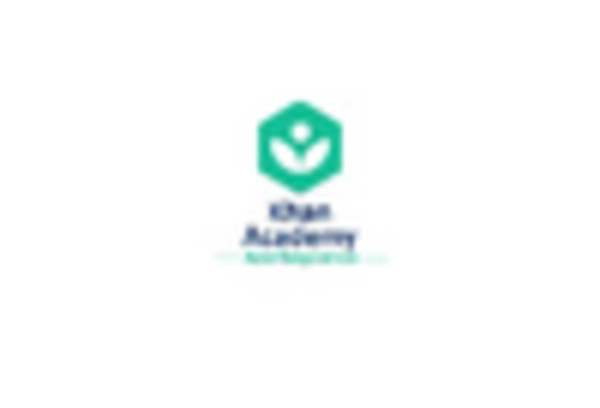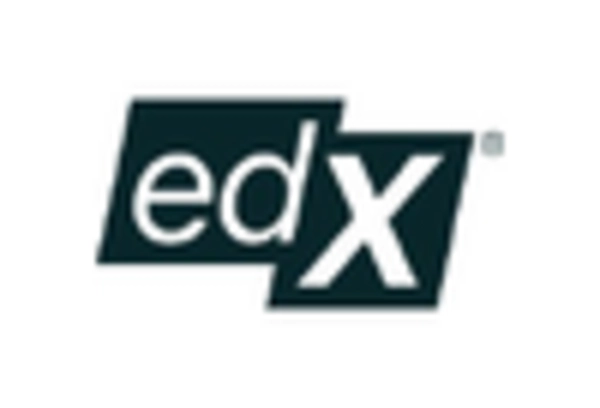Increased Focus on STEM Education
There is a growing emphasis on STEM (Science, Technology, Engineering, and Mathematics) education within the edtech market in the GCC. This focus is driven by the recognition of the importance of these fields in fostering innovation and economic growth. As of November 2025, it is reported that investments in STEM-related edtech solutions have increased by approximately 30% over the past year. Educational institutions are increasingly adopting platforms that support STEM learning, which is likely to enhance student engagement and prepare them for future careers in high-demand sectors. This trend is expected to further propel the edtech market as it aligns with national goals for economic diversification and workforce development.
Expansion of Mobile Learning Applications
The proliferation of mobile technology is significantly impacting the edtech market in the GCC, leading to an expansion of mobile learning applications. With smartphone penetration rates exceeding 90% in some GCC countries, educational content is increasingly being delivered through mobile platforms. This trend is particularly appealing to younger learners who prefer learning on-the-go. As of November 2025, it is estimated that mobile learning applications account for nearly 50% of the total edtech market revenue in the region. This shift towards mobile solutions is likely to continue, as educational institutions recognize the need to provide accessible and engaging learning experiences that cater to the preferences of modern learners.
Growing Demand for Remote Learning Solutions
The edtech market is experiencing a notable surge in demand for remote learning solutions across the GCC region. This trend is driven by the increasing need for flexible education options that cater to diverse learning styles and schedules. As of November 2025, it is estimated that approximately 60% of students in the GCC prefer online learning platforms due to their accessibility and convenience. This shift is prompting educational institutions to invest in advanced digital tools and platforms, thereby enhancing the overall learning experience. The edtech market is likely to benefit from this growing demand, as more institutions seek to integrate technology into their curricula to meet the expectations of tech-savvy learners.
Government Initiatives Supporting Edtech Innovation
In the GCC, government initiatives aimed at fostering innovation in the edtech market are becoming increasingly prominent. Various governments are implementing policies that encourage the adoption of technology in education, which includes funding for startups and partnerships with tech companies. For instance, initiatives such as the UAE's National Strategy for Artificial Intelligence are designed to integrate AI into educational practices. This support is expected to drive growth in the edtech market, as it creates an environment conducive to innovation and collaboration. By November 2025, it is projected that government funding for edtech initiatives could reach upwards of $500 million, further stimulating market expansion.
Rising Adoption of Artificial Intelligence in Education
The integration of artificial intelligence (AI) into the edtech market is gaining traction in the GCC region. AI technologies are being utilized to create personalized learning experiences, automate administrative tasks, and enhance student engagement. As of November 2025, it is estimated that around 40% of educational institutions in the GCC have begun to implement AI-driven solutions. This trend indicates a shift towards more adaptive learning environments, where educational content is tailored to individual student needs. The potential for AI to revolutionize the edtech market is significant, as it not only improves learning outcomes but also streamlines educational processes.
















